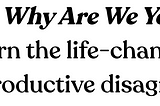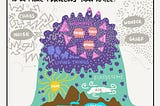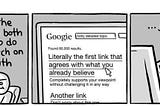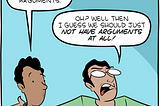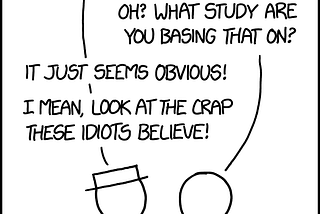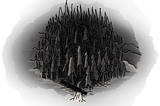Oct 9, 2022
25 stories
3 saves
I wrote this book, "Why Are We Yelling? The Art of Productive Disagreement", published by Penguin Random House in 2019. I believe everyone can benefit from thinking about disagreements as tools for connection, insight, and enjoyment, and this book outlines 8 tips for practicing that.
My cosmology in a nutshell.
The most popular article I've ever written, that led to me writing my book above.
A follow-up to the above article because it was pointed out to me that the "cheat sheet" wasn't actually that simple.
A follow-up to the topic of biases that I wrote after the book, where I go a step beyond just making the cheat sheet and try to answer the question, "What can we actually do about bias?"
The next few are all related to the journey from cognitive biases to writing a book about productive disagreement. This is basically a cheat sheet for the overall philosophy of the book.
Jan 18, 2019
This post basically outlines the chapters of the book, framed as tips that help us practice the art of productive disagreement.
The first "experiment" I ran around productive disagreement where I asked people to identify the arguments that they have with their partners that just keep coming up again and again over years. The one I picked for this was about the question, "Would you drink a glass of water that had been out for 3 days?" Very interesting results!
I wrote this so I'd have something to link to when I felt like I was spending my time looking for gotchas and zingers, so that I could try to steer the conversations back into the realm of the possibly productive.
Aug 15, 2017
This is my answer to the most common question I would get in interviews and conversations about disagreement and why it feels so frustrating.
Another common question and dead end for disagreements is this cultural belief that rationality is the solution to disagreements. I don't think it is and try to explain why here.
This is a slightly adapted excerpt of one of my favorite chapters in the book about cultivating neutral spaces.
One of my first articles here on Medium that seemed to resonate with a broader audience, it's a framework for thinking about how to live in a way that benefits from life's chaos instead of getting damaged by it. Because the chaos will always be here... might as well use it to our advantage.
A slightly provocative article where I talk about stream-of-consciousness private journaling as a practice that is like meditation... but better.
This article didn't get very many reads but it's probably one of my favorite ones that I've ever written, about a topic I care deeply about: how to make sense of life in a way that doesn't require dogma, othering, or relying on an ethics of domination and authoritarianism.
From a while ago but an article I still return to every year when I'm thinking about new year's resolutions. They don't have to suck.
I am obsessed with the iterated prisoner's dilemma, and have held a number of online tournaments that attempted to test some new theories about the best strategies within this game. It's tough to explain why I think it's so interesting, but I try to do so here.
I think about death a lot. This is one of the ways that I think a fixation with death can actually be healthy and motivating.
Jun 29, 2013
My whole career is in building product, but I don't really write about it a whole lot for various reasons. Here is the one time I tried to encapsulate my product philosophy. I think it holds up.
My first post on Medium, and one where I tried to describe my philosophy around quantified self, health and behavior change, etc. Kind of dated, but also still interesting to me for nostalgic reasons.
